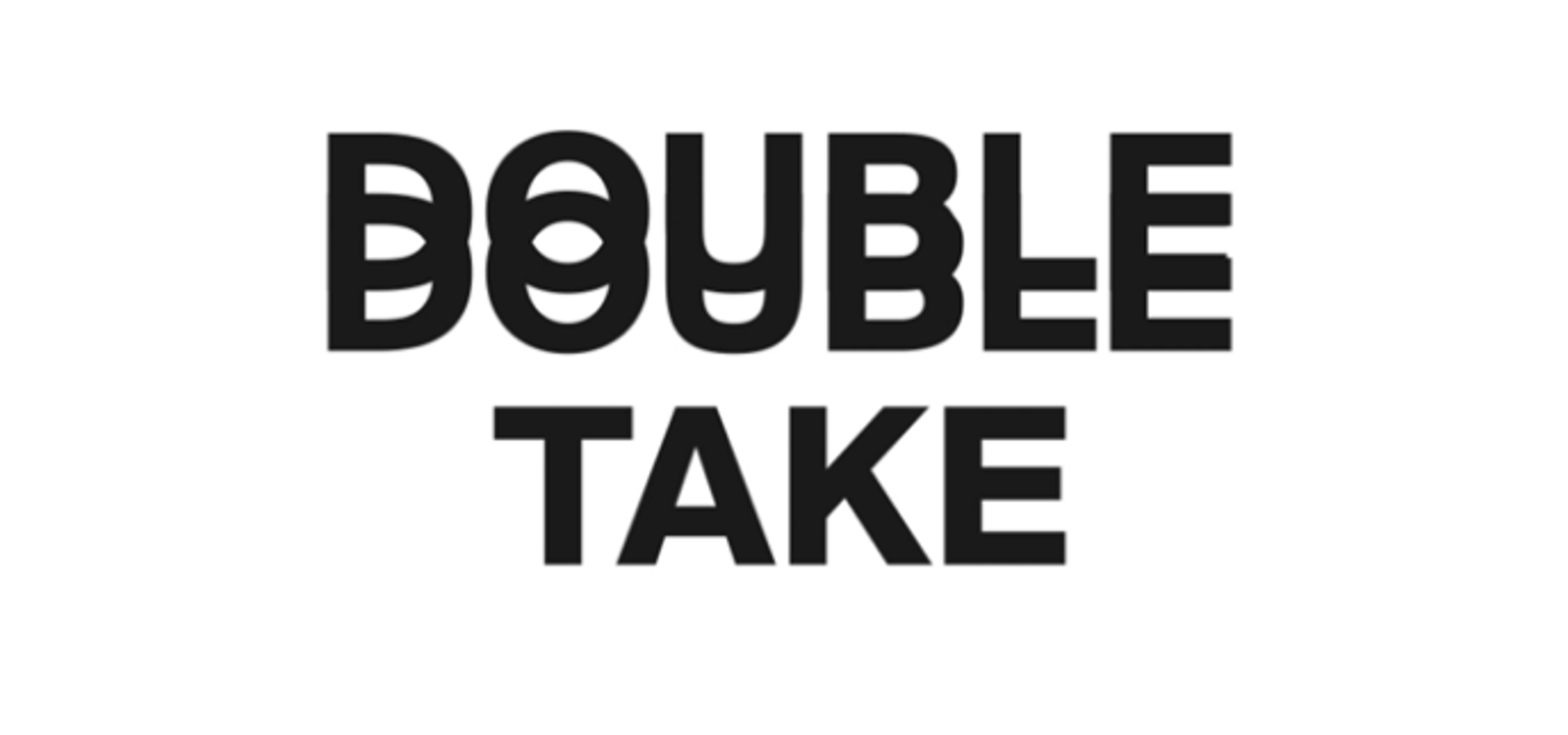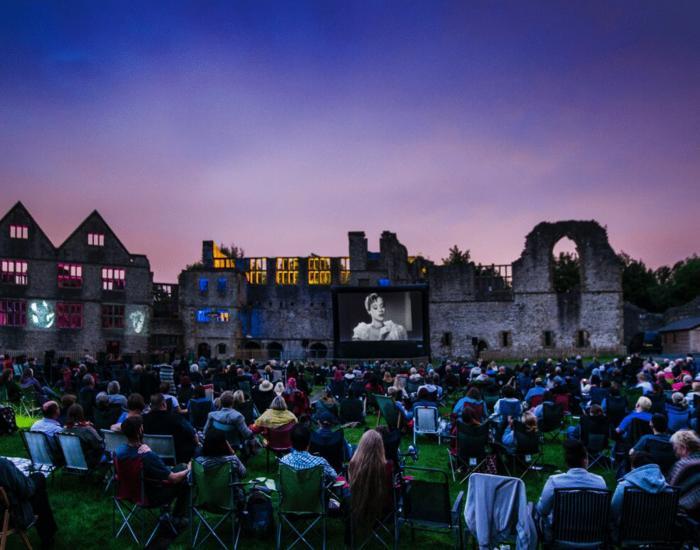CURIOSITY & CINEPHILIA
Inspired by our Double Take film season, writer and film critic Andrew Key reflects on the link between curiosity and cinema-going below.
The word ‘curious' has had a number of meanings over the course of its long life. We mostly use it now to describe the state of being eager to know or learn about something. But in the past it’s been used to mean ‘subtle’ or ‘sophisticated’. It has meant (and still can mean) ‘odd’, or ‘strange’, or even, in its Old French origins, ‘anxious’ — as in, we’re anxious to get to the bottom of a question.
It comes from the same Latin word that give us ‘careful’. It can have a negative connotation — meaning ‘meddlesome’ — something to be warned against (it kills cats). In booksellers’ catalogues in the nineteenth century, it became a euphemism for ‘erotic’ and ‘pornographic’: if something was listed with the term ‘curiosa’, it was more than likely to be salacious material.
it must be powerful if your parents want to keep it from you.
For Sigmund Freud, father of psychoanalysis, curiosity has a very direct relationship to sexuality. The first experience of curiosity emerges at a very particular moment in childhood. It’s not a natural state that we bring with us into the world, but it’s something that we all come to in time. Usually, the first flickers of curiosity are sparked in the child by the birth of a sibling, or an encounter with a new baby in another family. Curiosity arrives as the result of some change in our world which makes things feel unstable all of a sudden: this new child means that you are no longer — or might soon no longer be — the centre of the world. You can be displaced in your parents’ affections.
The origin of curiosity is a jealous anxiety towards a sibling, or the threat of one, and it leads to the question, asked by all children sooner or later: Where do babies come from? This question contains both the need to find an answer and the need to gain some small degree of mastery over the changed situation. If I can figure this out, then maybe it won’t be such a threat to me.
Freud tells us that all subsequent urges towards knowledge, all future researches, stem from this moment in early childhood. He tells us that the child’s curiosity, their need to know, is almost never satisfied at this moment, mostly because it is extremely rare for children to be given an adequate answer to their question. A stork delivers the baby: clearly this is nonsense and it can only fool children for a little while.
They know intuitively that this is bunk, an embarrassed cover-up for something else — something that’s being hidden from them. Telling a child that they were in their mother’s stomach also doesn’t ring true for long: children have experienced things being in their own stomachs and know, deep down, that’s not where babies really come from. These convenient lies — storks and stomachs — put children in a new relationship to the truth. Firstly, their parents are no longer quite so trustworthy: adults say one thing but mean another; they hide things, and so the truth suddenly becomes more valuable and powerful than it has been before — it must be powerful if your parents want to keep it from you.
There’s something disreputable and a little sordid about spending too much time in a cinema, watching other lives unfold.
The question of sexuality is pressing, but it reminds hidden. Because of this, the child becomes eager to keep their own discoveries a secret from their parents. They become solitary researchers, using their time to try to get to the bottom of this urgent question, but, of course, they’re incapable of reaching a satisfactory answer on their own.
Some people give up the search for knowledge after this first disappointment, and they settle down into a life where the need to know is not particularly strong. But many people retain their curiosity and become burdened and thrilled by the fruitless and unsatisfying search for answers to the many questions their life throws in their path.
What’s all this got to do with going to the cinema? Film theorists have spilled plenty of ink trying to figure out the role of sexuality in the movies, and they’ve thought extensively about the voyeurism of the cinema-goer, sitting there in the dark, staring at beautiful faces blown up to an enormous scale, trapped in their solitude at the same time that they’re part of an audience. There is a kind of fetishism at work in the cinephile, a taste for a certain kind of film, a certain actor, for a particular seat in the screen. There’s something disreputable and a little sordid about spending too much time in a cinema, watching other lives unfold.
We watch films in the hopes of finding an answer to our questions, those pressing concerns at the root of our existence.
We don’t watch films merely for entertainment or distraction; at least, not if we watch them with any curiosity. We watch films in the hopes of finding an answer to our questions, those pressing concerns at the root of our existence. Problems like: How should I live? How can I find love, or sex, or money, or even, eventually, happiness? How should I act around other people? Or what kind of person should I act like? How can I learn how to be myself?
Films don’t, won’t, can’t give us the answers to these questions directly, but they shape our lives nevertheless, providing the contents of our dreams and fantasies. We watch films to see people who do know how to act, so we can try and make sense of our own behaviour. These questions all follow from that first moment of curiosity in childhood, tied up in the murky confusion of our early encounters with the facts of sexuality. The uncanny feeling that cinema can evoke so well, that of watching someone meet their double, is chilling and uncomfortable because it takes us back to something long buried and forgotten: the moment in childhood when our sense of our own uniqueness is both established and troubled.
If we can encounter our own double, we aren’t as unique as we thought, and we might be replaced at any time. What if someone takes your name, moves into your house, starts looking and dressing like you? Who is it that you see when you look at yourself in the mirror? Is it you, or is it another?
Double Take is a weird weekend of films about dreams and doubles taking place between 22 - 24 July. Films in this season include a 3D presentation of A Long Day's Journey Into Night (2018); a rare screening of Robert Altman's 3 Women (1977) which includes an introduction from Andrew Key himself; David Lynch's Mulholland Drive (2001) plus a screening of Meshes of the Afternoon, and a 35mm presentation of Celine and Julie Go Boating (1974).
Andrew Key is the author of Roland Barfs Film Diary and can be found on Twitter and Instagram. He has authored numerous essays on films for a wide range of publications.
Presented in collaboration with Kino Klubb, Double Take is part of Film Feels Curious, a UK-wide cinema season, supported by the National Lottery and BFI Film Audience Network. Explore all films and events at filmfeels.co.uk

